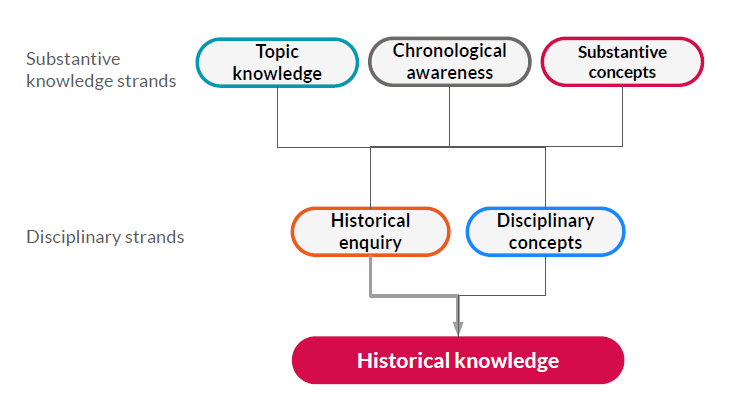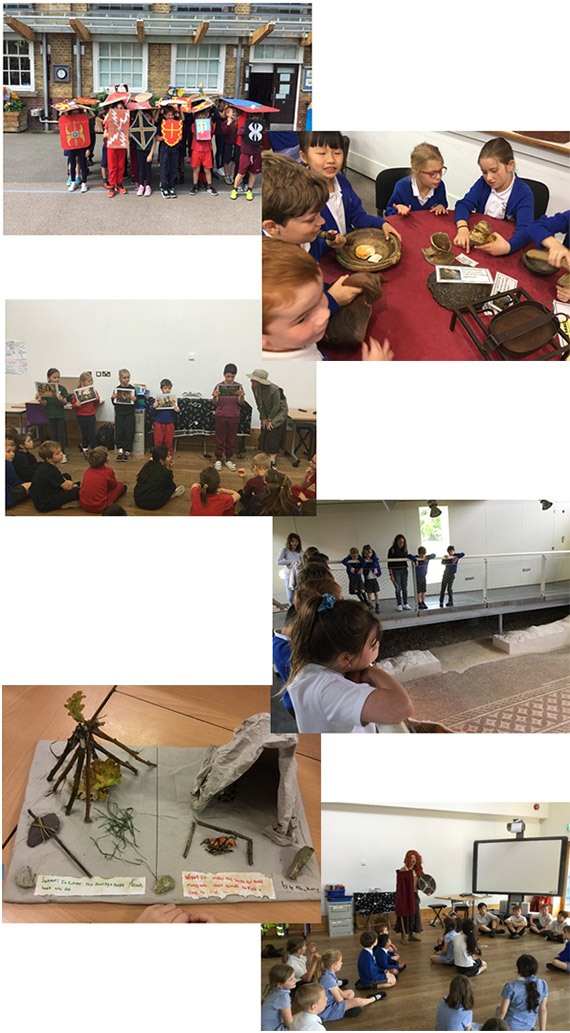
HISTORY AT ORLEANS PRIMARY SCHOOL
History is essentially about people and their development over a period of time. It is our aim that, through the study of History, pupils at Orleans will become excited by events in the past, becoming detectives and researchers using primary and secondary sources and through online research. We aim to foster an understanding of how the past influences the present and help children develop some chronological understanding – recognising the relationship between the periods they have studied.
Throughout our lessons, we aim to build an awareness of significant events and individuals in global, British and local history and recognise how things have changed over time. History will support children to appreciate the complexity of people’s lives, the diversity of societies and the relationships between different groups. Studying History allows children to appreciate the many reasons why people may behave in the way they do, supporting children to develop empathy for others while providing an opportunity to learn from mankind’s past mistakes. We use Kapow Primary's History scheme, which aims to support pupils in building their understanding of chronology in each year group, making connections over periods of time and developing a chronologically-secure knowledge of History.
The Kapow Primary scheme emphasises the importance of historical knowledge being shaped by disciplinary approaches, as shown in the diagram. These strands are interwoven through all the History units to create engaging and enriching learning experiences, which allow the children to investigate history as historians do.

History in the Foundation Stage
Children are developing the crucial knowledge, skills and understanding that help them to make sense of the world, in historical ways. We understand that to effectively develop these skills children at this stage need access to plenty of first-hand experiences that encourage exploration, observation, problem-solving, prediction, critical thinking, decision-making and discussion. The specific area of learning is called Understanding of the world. It involves guiding children to make sense of their physical world and their community through opportunities to explore, observe and find out about people, places, technology and the environment.
Key Stages 1 & 2
In KS1 and 2, units are organised around an enquiry-based question and children are encouraged to follow the enquiry cycle (Question, Investigate, Interpret, Evaluate and conclude, Communicate) when answering historical questions.
Over the course of the scheme, children develop their understanding of the following key disciplinary concepts: Change and continuity; Cause and consequence; Similarities and differences; Historical significance; Historical interpretations; Sources of evidence. These concepts will be encountered in different contexts during the study of local, British and world history. Children will have varied opportunities to learn how historians use these skills to analyse the past and make judgements. They will confidently develop and use their own historical skill set. As children progress through the Kapow scheme, they will create their own historical enquiries to study using sources and the skills they have developed.
Substantive concepts such as power, trade, invasion and settlement, are introduced in KS1, clearly identified in LKS2 and revisited in UKS2, allowing knowledge of these key concepts to grow. These concepts are returned to in different contexts, meaning that pupils begin to develop an understanding of these abstract themes which are crucial to their future learning in History.
We use the spiral curriculum model where previous skills and knowledge are returned to and built upon. For example, children progress by developing their knowledge and understanding of substantive and disciplinary concepts by experiencing them in a range of historical contexts and periods.

